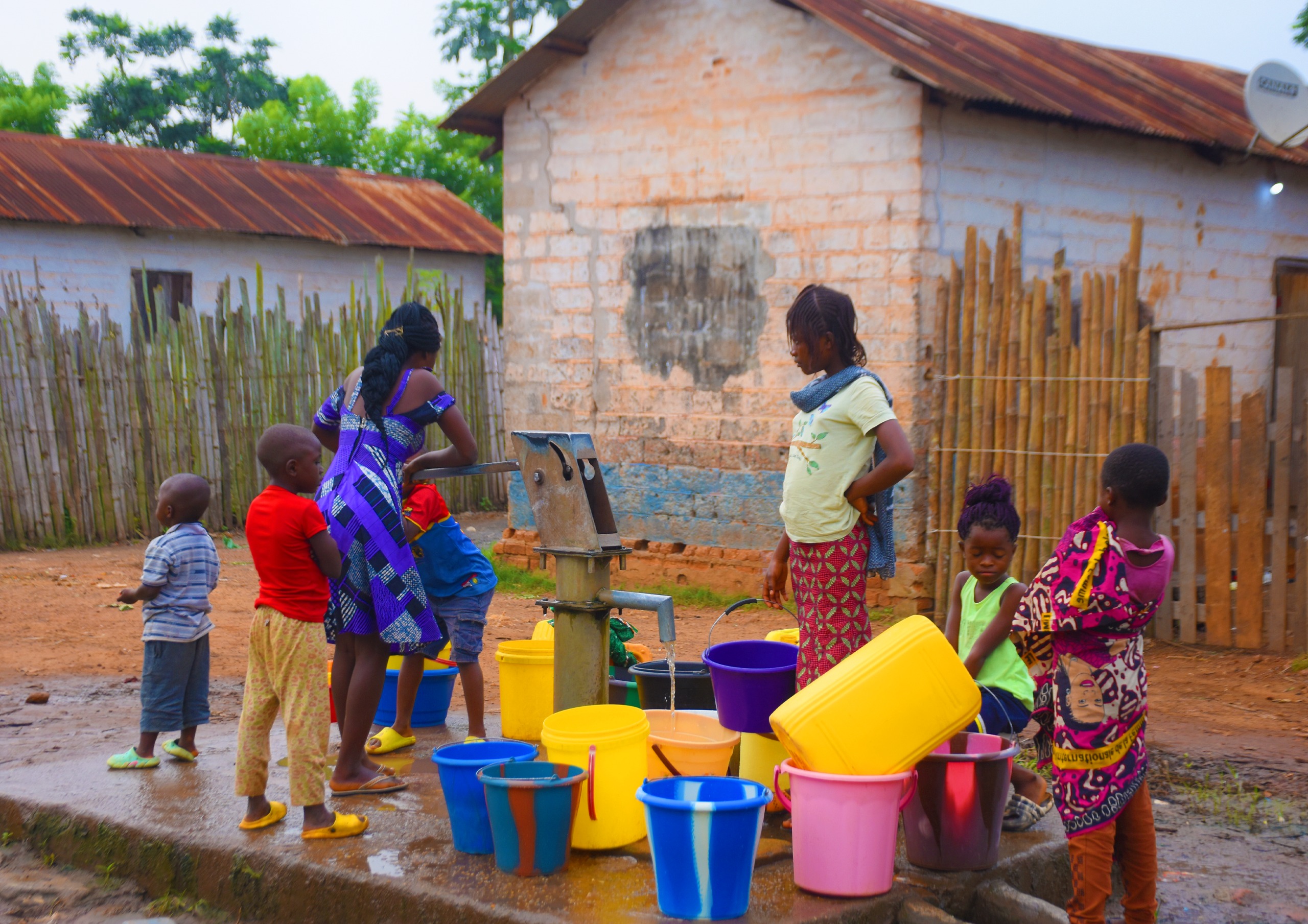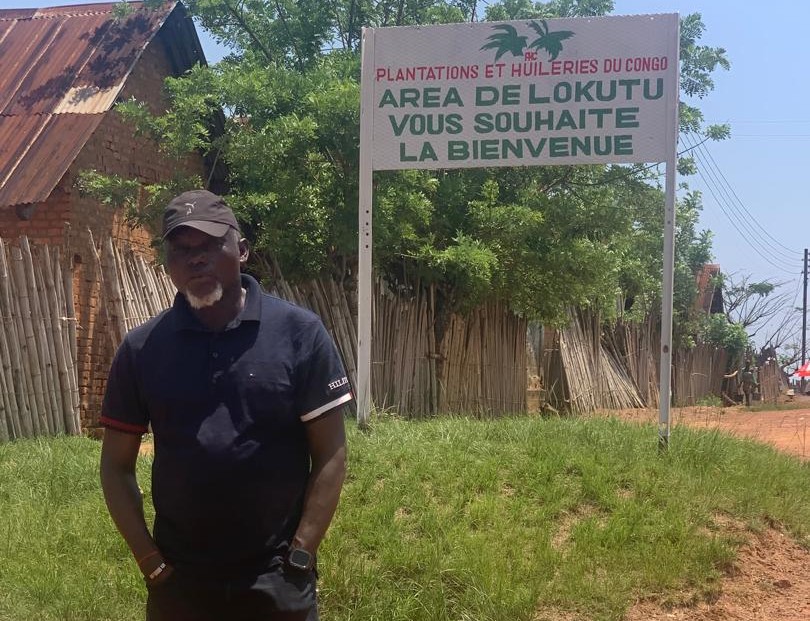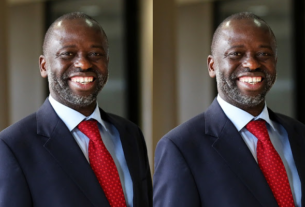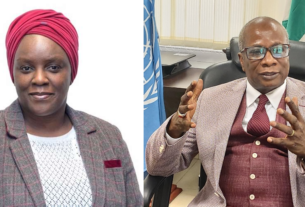Seven years after denouncing the abuses of the PHC-Feronia company to European development banks, Jean-François Mombia Atuku, founder of the “Information and Support Network for NGOs” (RIAO-RDC), returned to the field. From March 23 to April 22, 2025, he led a monitoring mission to Lokutu, in Tshopo province, Democratic Republic of the Congo, with a clear objective: to assess the evolution of relations between Plantations et Huileries du Congo (PHC), the country’s leading industrial palm oil producer, and the local communities living on the edge of its plantations.
This return comes at a pivotal moment. In 2018, when PHC was still managed by the Feronia Group, persistent tensions related to land disputes, allegations of human rights violations, and unfulfilled social commitments led RIAO-RDC to file complaints with European development banks, PHC’s main financial backers. Since then, the dynamics have shifted. But the central question remains: has the situation on the ground truly improved?
During his mission in Lokutu, Jean-François Mombia Atuku witnessed notable changes. Previously, farmers were threatened or intimidated for developing their own plantations. Today, new partnerships have emerged: farmers deliver palm fruit bunches directly to PHC, reflecting cooperation rather than conflict.
More strikingly, reports of torture, arbitrary arrests, and violent repression have disappeared. Yesterday’s tensions have given way to a cautious but calmer coexistence. Significantly, several community voices now express the desire to keep PHC in the region, recognizing the company as a potential driver of local development, provided it fully honors its commitments.
On the employment front, working conditions in the plantations have improved: wages have been increased, and personal protective equipment is now provided to workers, marking progress toward greater dignity and workplace safety.
Concrete progress, ongoing expectations
Beyond improved relationships, daily life in the surrounding communities is also undergoing transformation. On the ground, tangible progress signals a will to change on PHC’s part. In Lokumete, Tshopo province, the company hospital has been modernized, offering better healthcare tailored to the population’s needs. Boreholes have been installed, finally providing safer drinking water in several villages.
PHC and its neighboring communities: a long and troubled history
The history of Plantations et Huileries du Congo (PHC) is deeply intertwined with that of the Democratic Republic of the Congo. Present in the country since 1911, PHC remains today the main industrial palm oil producer.
Initially operating under the name “Huileries du Congo Belge” (HCB), the company became “Plantations Lever au Congo” (PLC) in 1960, then Plantations Lever au Zaïre (PLZ) following the post-independence Africanization of company names. Until 1996, it remained under the ownership of the agri-food giant Unilever, which at the time developed about twenty plantations across the vast Congolese rainforest.
However, in 1973, Mobutu’s policy of “Zaïrianisation” disrupted this trajectory. PLZ was forced to divest much of its assets. Only three plantations, Boteka (Équateur province), Lokutu (Tshopo), and Yaligimba (Mongala), remained in operation. These were eventually sold in 2009 by Unilever to the Canadian group Feronia, marking the beginning of PHC-Feronia.
Despite ambitious plans to revive production, Feronia’s management was plagued by chronic difficulties. These persistent challenges led to the 2020 sale of PHC to African investment fund Kuramo Capital Management, now the majority shareholder alongside the Congolese government.

The Feronia era: a climate of tension and social struggles
The PHC-Feronia period is remembered for recurring conflicts and sharp tensions between the company and neighboring communities. At the heart of the discord were unresolved land claims, accusations of violence by security agents or law enforcement, and growing frustration over unmet promises made to local populations.
Amid this toxic environment, one man emerged as the voice of the forgotten: Jean-François Mombia Atuku, a respected figure in Congolese civil society, known as “the Little David of the Congo Basin” for his relentless defense of human rights and social justice.
Starting in 2016, through the work of his NGO RIAO-RDC, Mombia Atuku launched a mediation process between PHC and the communities, aiming to rebuild broken dialogue. This painstaking and often difficult work led to the signing of “Social Clauses” ,true reconciliation pacts, first in Lokutu in 2017, then in Boteka and Yaligimba in 2018.
These agreements marked a first victory in an asymmetrical struggle where communities asserted their rights against a powerful industrial giant, armed only with resilience, and the unwavering support of a determined advocate.
Persistent mistrust: toward international mediation
Yet despite the signing of the Social Clauses, hopes for reconciliation soon collided with reality. Communities continued to raise alarms, denouncing the failure to uphold commitments and ongoing abuses attributed to the company. For many, the agreements were nothing more than empty promises.
Faced with this impasse and the lack of concrete responses, Jean-François Mombia Atuku, at the express request of the communities of Boteka and Lokutu, decided to take another step. Acting as a voice for marginalized populations, he filed an official complaint with European development banks, then the primary funders of Feronia.
This initiative sent shockwaves through the financial institutions, prompting them to acknowledge their social and environmental responsibilities. As a result, they established the “Independent Complaints Mechanism” (ICM),a rare international mediation procedure. This unprecedented process spanned two years, from 2022 to 2024, with the hope of producing sustainable, fair solutions that respect the rights of local communities.
A fragile agreement, ongoing vigilance
The final report from the Independent Complaints Mechanism, published in August 2024, left a bittersweet impression. Despite months of negotiation, no lasting consensus could be reached between PHC and the local communities. Provincial authorities, alerted by continued grievances, eventually stepped in. Their mediation, in December 2024, led to a collaboration and peaceful coexistence agreement between PHC and the concerned communities.
However, this agreement was negotiated without the involvement of RIAO-RDC, a historical and key community advocate. Cautious but determined, Jean-François Mombia Atuku chose to return to the field to assess the agreement’s legitimacy and actual acceptance by the local populations.
It was in this context that a comprehensive investigation was launched in early 2025, including a community survey to gather real perceptions, beyond official narratives, and lay the groundwork for a more transparent and equitable dialogue.
The RIAO-RDC survey results show a notable improvement in trust between communities and PHC’s current leadership. Open tensions appear to have subsided, and dialogue (though still fragile) has resumed.
However, not all is settled. Some promises remain unfulfilled, and local populations remain vigilant. Two major concerns stand out: the long-awaited demarcation of PHC’s concession, and the implementation of development projects promised in the December 2024 agreements, which are still pending.
Thus, while hope is being rekindled, it hinges on one essential condition: the real translation of commitments into lasting actions.
Hope on the ground: tangible signs of change
During his mission in Lokutu, Jean-François Mombia Atuku took the pulse of local realities. One thing became clear: land issues remain central to community concerns. While the December 2024 agreement calls for official demarcation of the PHC concession by relevant authorities, local chiefs are demanding a transparent, participatory process, fearing they could once again be excluded.
The agreement also commits PHC to actively support the communities’ efforts to obtain land titles as “Local Community Forest Concessions” (CFCL). For many residents, this goal represents more than a bureaucratic step. It’s a promise of dignity, rootedness, and sovereignty over ancestral lands. They now expect concrete action to fulfill this promis
A new era to consolidate
At the end of his mission, Jean-François Mombia Atuku did more than just report his findings—he proposed a clear roadmap to anchor the observed progress. His main recommendation: accelerate the demarcation process for PHC’s concessions under the close supervision of competent authorities. This long-demanded measure is seen as a necessary step toward land peace.
Another key proposal: establish a multi-stakeholder monitoring committee, bringing together representatives from PHC, community leaders, local authorities, and civil society actors. The aim: to ensure transparency, accountability, and above all, institutionalize dialogue.
For this mission was not merely an evaluation visit. It marks a pivotal step in the reconciliation between PHC and its neighboring communities. Thanks to the drive of Mombia Atuku and the perseverance of RIAO-RDC, a new atmosphere of trust seems to be emerging.
The road toward equitable development and respect for human rights remains strewn with obstacles. That’s why RIAO-RDC, true to its mission, remains actively engaged. It will ensure that every promise is kept, every community voice heard, and that social peace becomes not a fleeting moment—but a lasting foundation.



